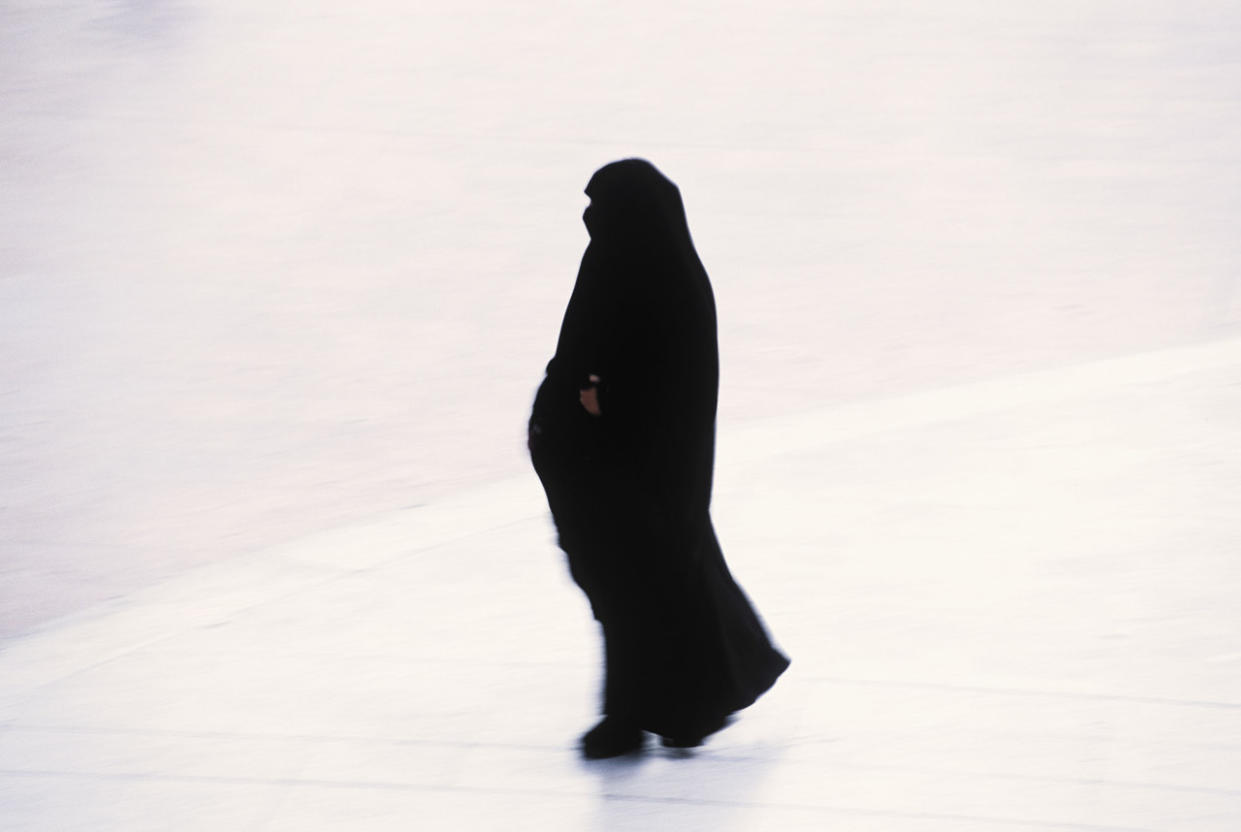In ISIS-Controlled Territories, Forcing Women to Cover Up Has Deep Psychological Effects

Wearing head-to-toe covering is not optional and can have deep psychological ramifications. (Getty Images)
Women in ISIS-controlled territories are being forced to wear burqas that conceal everything but their eyes. Of course, some Muslim women willingly cover up. But for women who are accustomed to wearing what they want, or perhaps just a headscarf, the forced wearing of full-body coverings can be stifling and traumatic but ultimately a survival challenge, experts told Yahoo Health.
Phyllis Chesler, professor emeritus of psychology and women’s studies at City University of New York and author of An American Bride in Kabul, says that wearing a burqa for the first time — even willingly — can produce “sudden feelings of anxiety and claustrophobia.”
“It’s very uncomfortable,” Chesler told Yahoo Health. “It’s sensory deprivation, an isolation chamber. It’s hard to eat in a restaurant, hard to have a normal conversation, hard to buy things in a marketplace.”
However, according to an Express report, women in ISIS-conquered areas are required to wear loose, head-to-toe covering without designs that “attract attention.”
Punishment for failing to comply with the ISIS dress code is severe. The New York Times reported that women have been whipped for wearing coverings deemed too formfitting. Other women and their families have been fined for wearing the wrong clothes.
Chesler says living under a constant clothing fear can lead to “clinical depression, panic attacks, and low self-esteem.” Also, being covered from the sun can cause vitamin-D-deficiency diseases, like osteoporosis.
“You’re in a prison that moves,” Chesler says.
Related: 6 Life-Changing Tips From People Living With Depression
However, not all women react the same way to being forced to cover up.
“Some will feel resilience, the ability to adapt and change,” says Frank Farley, psychology professor at Temple University in Philadelphia and former president of the American Psychological Association. “Others will have much more difficulty, and some will be psychologically devastated.”
Farley (and Charles Darwin) say species survive by being able to adapt to changes in their environment.
“In many species, if you destroy the habitat, the species disappears, they’re gone,” Farley told Yahoo Health. “Here, you have the necessity to adapt to a new environment. Humans have this astounding resilience. People have done that throughout human history, adapted to terrible situations and survived. You may not thrive, but you can survive.”
Related: Can Neuroscience Explain Why People Are Sexist?
Women who view the ISIS-controlled dress code as another challenge to be met and mastered will fare the best.
“If you’re a woman under ISIS control, you have to adapt. It’s going to be a deep, psychological challenge, but you have no choice,” Farley says.
The knowledge that many women adapt to and even choose the burqa will make the challenge easier.
“It becomes the norm, the standard,” Farley says. “If everyone’s doing it, then, heck, you can do it too.”
In other words, when given no choice, get on board.
“You can’t walk out of ISIS-controlled territory to freedom, so all the changes have to come from within you,” he says. “You’ve got to keep on ticking, pull out your reserves in strength, and say, ‘I will. I can. I’ll survive.’ When you frame it that way, you can hopefully begin to focus on other things in your life. Not the clothing but relationships, those you love, family. Those are the important things anyway, not the clothing.”
Read This Next: This Woman Explains What It’s Like to Be in a Medically Induced Coma
Let’s keep in touch! Follow Yahoo Health on Facebook, Twitter, Instagram, and Pinterest.

